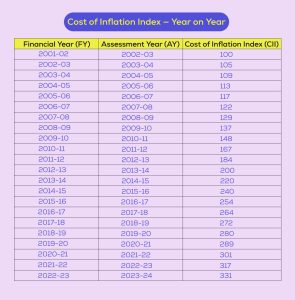In finance, there is a term for all of the profits made on capital assets like homes, stocks, bonds, art, and other investment properties. The term is Capital Gain, and it comes in different types.
Knowing how to calculate capital gains in relation to each type is important. It will help you have a better understanding of how taxes are calculated. If you want to learn more about them, look no further.
What is capital gain?
Capital gains are the profits earned from assets due to their value appreciating over time. You need to sell the asset concerned for profits from value appreciation to kick in as a capital gain. Unless you sell the asset, all that remains is some unrealized gain.
Capital gains are relevant to investment instruments like funds, stocks, property, and more. However, in the case of businesses, the capital gains narrative applies even to securities like machinery, equipment, furniture, and even vehicles. The idea here is that these securities add value to the organization, helping it grow and make more money.
While capital gains are essentially the profits made once the asset is sold, some financial statements have a place for unrealized capital gains—that is, for profitable unsold assets.
Types of capital gain
The duration of holding determines how much profit is made or loss is incurred. That is why capital gain can be of two types based on how long the underlying asset was held.
- Short-Term Capital Gain (STCG): Profits made from selling capital assets within one year or even less are called short-term capital gains.
- Long-Term Capital Gain (LTCG): If you have been holding assets for over a year, the profits accrued from selling off your holdings are known as long-term capital gains.
Factoring in how the two kinds of gains affect your portfolio will help you create a better investment strategy for yourself. Each of these types of capital gains comes with different tax implications. (See the tax calculation section below for more on this.) LTCG is generally taxed at a lower rate in India, so you may want to factor that into your investment strategy.
Calculating capital gain
Suppose you are interested in investing in a certain company. You buy 200 shares at ₹200 apiece. The total value of the investment is, therefore, ₹40,000.
After 6 months, the share price rises to ₹250 apiece. If you sell at this point, you get ₹50,000 (that’s ₹250 multiplied by 200).
So, you will go home with a capital gain of ₹10,000 (that is, ₹50,000 – ₹40,000).
- Once the sum is calculated, deduct the following overheads:
- Asset acquiring expenses (in the case of shares, this would be the platform fee).
- Expenses associated with asset transfers (any fee or charge associated with fund movement from the Demat account to the bank account).
How to calculate capital gain on a property
The calculation is simple enough in the case of investment instruments, but property assets have to be dealt with differently. With property, you will also need to deduct the following additional costs from the final value of the property:
- Brokerage commissions
- Money spent on paperwork
- Money spent on property improvement
You could also use the Cost Inflation Index or CII to adjust the value against current inflation. Here is a detailed capital gain index chart that indicates the CII number for each financial year since 2000.

Source: Basunivesh
An example could help us understand the math involved in using such a chart. Let’s say you bought a house in 2012–13. Then in 2021–2022, you decided to sell the property. The chart above indicates that 317 is the CII figure in the sale year, and 200 is the CII figure in the year of purchase. Going by this, the final and inflation-adjusted cost price could be calculated as follows:
Inflation-Adjusted Cost Price = Actual Cost Price x ( 317/ 200)
This adjustment reduces the capital gains by increasing the base price of the property.
What is capital gain tax?
Capital gain tax is the tax that applies to capital gains. But since short- and long-term gains are taxed differently, things are a little more complicated than the definition may lead us to believe. In addition, taxation depends on the type of asset in the Indian context.
In India, for LTCGs made on selling equity, you will need to shell out 10% as tax for profits above ₹1,00,000. For all non-crypto assets other than equity shares, the tax rate applied to long-term gains is a flat 20%.
With STCG, securities-based gains (home, vehicle, machines, equity funds, etc.) are taxed at a flat 15% in India. For anything else, the gains need to be added to the income tax declaration.
For crypto, though, LTCG and STCG are taxed at 30%, with the only exemption being the fee charged by the platform for transfers.
How to save capital gain tax
Be it LTCG or STCG, you can try and save taxes via the following strategies:
- Setting off all the capital losses. This is, however, not applicable to crypto-specific gains.
- Creating a Capital Gains Account Scheme (CGAS) account to benefit from the relevant scheme. The scheme offers discounts on tax to those who reinvest their capital gains within a specified time period.
- Adjusting property-specific gains for inflation. This can be done using the capital gain index chart mentioned above and remember to deduct all relevant overheads.
- Investing in tax-deferred plans, especially for retirement.
- Looking at long-term investment opportunities.
- Buying capital gain bonds. In the subsection below, you can learn how to do this.
- Buying capital gain bonds online
- While the strategies mentioned above can help you save tax, there is a more specific way to reduce capital gain tax on property.
- Purchasing capital gain bonds. Doing so further helps reduce your tax obligations under Section 54EC. These bonds help you with tax exemption, provided you invest in them in less than six months after you get gains.
You can purchase bonds of this kind from authorized brokers, or you can simply find them online. If you decide to take the online route, look for Indian Railway Finance Corporation (IRFC), Power Finance Corporation (PFC), and Rural Electrification Corporation (REC) bonds. Of course, you will need to fill out a few online application forms for them.
How to avoid capital gains tax
There is no way to avoid capital gains tax entirely if you fall within the taxable bracket. However, it is possible to save on taxes, and that is something you must have learned about in the section above. To sum it up, in India, long-term capital gains arising from equities can only be taxed after they cross ₹1 lakh. So if your equity-based gains are under this limit, you are exempted from paying taxes here.
That said, it is better to try not to build a portfolio around trying to avoid taxation.
Wrap-up
Capital gains are all about selling an investment when the value of the asset appreciates. Therefore, if you are an investor, it is important to understand the concept of capital gains and the relevant tax obligations well.
Once you do, it becomes easier to pick investment instruments and time frames that will help you maximize your gains. Remember, doing your own research is the key to planning your investments.
FAQs
How Do Mutual Funds Account for Capital Gains?
Mutual funds handle capital gains by pooling profits from selling investments. They distribute gains to investors in dividends or reinvest to grow fund value.
What Is a Net Capital Gain?
A net capital gain is the profit earned from selling investments, minus any losses. It’s what’s left after subtracting losses from gains, showing overall investment performance.
Are all investments subject to capital gains tax?
Most investments are subject to capital gains tax when sold at a profit. However, tax rules vary based on factors like holding duration and account type.
What is the difference between short-term and long-term capital gains?
Short-term capital gains arise from selling investments held for a year or less, while long-term gains come from holding investments for over a year. Tax rates differ for each.
Is capital gains tax applicable to cryptocurrency trading?
Yes, capital gains tax usually applies to cryptocurrency trading. Profits from selling cryptocurrencies are subject to taxation, similar to gains from other investments.








